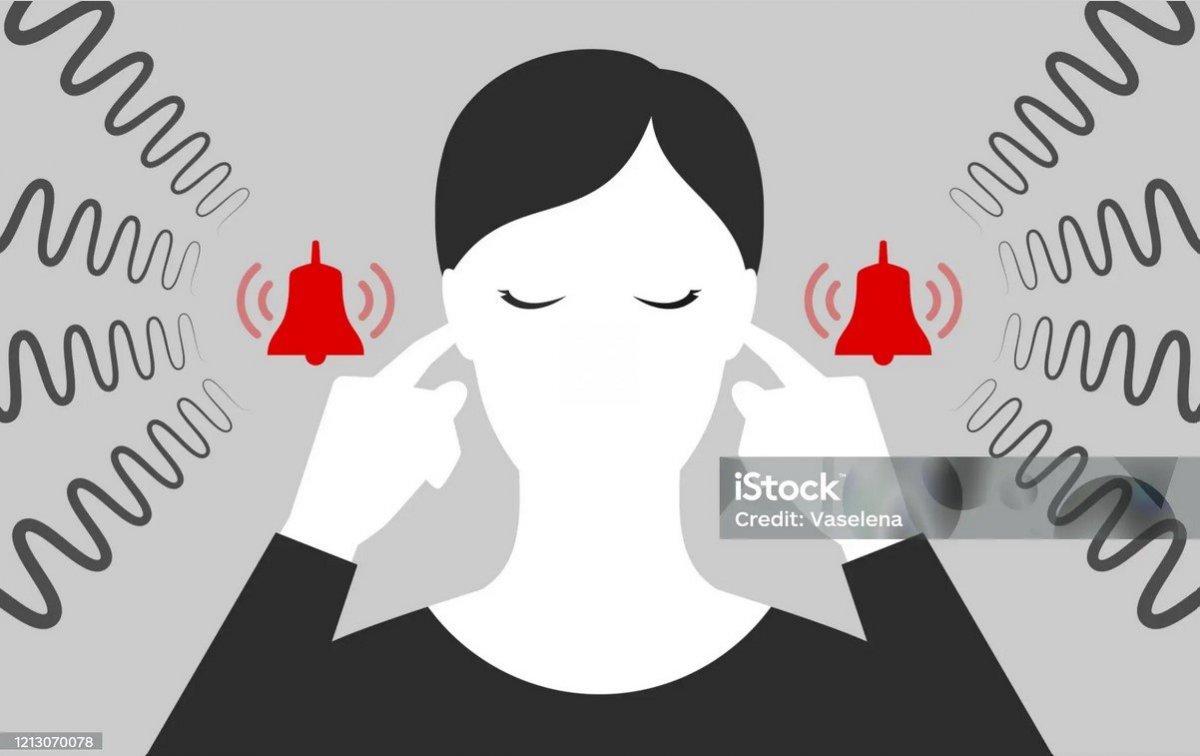-
Posts
45,723 -
Joined
-
Last visited
Content Type
Events
Forums
Downloads
Quizzes
Gallery
Blogs
Everything posted by Rimmer
-
Thank you for the update sangtip2 This very old topic can now be closed //CLOSED//
-
Drone fever is sweeping New Jersey, as new data shows residents have reported more than 1,000 sightings of the flying objects across the state in less than a month. Some 964 incidents have been logged in total since the first sighting on November 19 up until December 13, according to statistics collected by the state’s Office of Emergency Management and shared with the New York Post. Yet despite the startling volume of apparent sightings - which have prompted locals to shoot into the sky and even sparked the closure of an airport in neighboring New York - officials are yet to provide answers about who or what is behind the drones. As the flashing objects continue to circle the skies above New Jersey and beyond, theories about the source have proliferated in the homes of lawmakers and residents below - from Project Blue Beam to foreign conspiracies. Full story: https://www.dailymail.co.uk/news/article-14194825/nj-drone-theories-project-blue-beam-foreign-interference-iran.html
-
Per OP request //CLOSED//
-

Thailand Targets Tougher Alcohol Laws to Align with Global Norms
Rimmer replied to webfact's topic in Thailand News
An unattributed inflammatory post has been removed, please also see the following forum rule. 23. You will not use ASEAN NOW as a platform to gather support to effect changes on religious, political, or governmental issues. -
Tinnitus is the perception of noise or ringing in the ears when no external sound is present. It is a symptom, not a disease, and can be caused by a variety of underlying conditions. The sound heard can vary widely and may include ringing, buzzing, humming, hissing, clicking, or roaring. It can occur in one ear, both ears, or even inside the head. Dealing with tinnitus can be challenging, but there are strategies and lifestyle adjustments that may help you manage the symptoms effectively. Here are ten tips: 1. Practice Stress Management Stress often exacerbates tinnitus. Techniques like mindfulness meditation, yoga, deep breathing exercises, or progressive muscle relaxation can help reduce stress and its impact on your tinnitus. 2. Use White Noise or Sound Therapy Masking the ringing in your ears with white noise, soft music, or nature sounds can help make tinnitus less noticeable. Devices like sound machines or tinnitus-specific apps can be useful. 3. Seek Cognitive Behavioral Therapy (CBT) CBT can help you reframe negative thoughts about tinnitus and reduce its emotional impact. This therapy has been proven effective in managing tinnitus-related distress. 4. Avoid Silence Keeping a low level of background sound can help mask the tinnitus and prevent it from being the dominant sound you hear. 5. Protect Your Ears Avoid exposure to loud noises, which can worsen tinnitus. Use earplugs or noise-canceling headphones in noisy environments. 6. Maintain a Healthy Diet and Stay Hydrated Certain foods and beverages, like caffeine, alcohol, and salty foods, can aggravate tinnitus in some people. Keep a diary to identify potential triggers and maintain a balanced diet. 7. Exercise Regularly Physical activity improves blood circulation and overall health, which can indirectly benefit tinnitus. Activities like walking, swimming, or cycling are good options. 8. Limit Stimulants Reduce intake of stimulants like caffeine and nicotine, as they can worsen tinnitus in some cases. 9. Consult a Hearing Specialist Tinnitus often accompanies hearing loss. A hearing specialist can help with hearing aids or tinnitus retraining therapy (TRT), which can improve your quality of life. 10. Establish a Sleep Routine Tinnitus can disrupt sleep. Maintain a consistent sleep schedule, create a calming bedtime routine, and use white noise or sound machines to promote restful sleep. By combining these tips and working with healthcare professionals, you can develop a personalized plan to manage your tinnitus more effectively. If symptoms persist or worsen, consulting an audiologist or an ear, nose, and throat (ENT) specialist is essential.
-
Russia Cancels Ruble.
-
Some off topic bickering posts and replies have been removed
-
Cats have long been associated with promoting wellness and improving people's mental, emotional, and even physical health. Here are a few factual anecdotes and studies that highlight how cats contribute to well-being: 1. Stress Reduction and Emotional Support Studies have shown that spending time with cats can lower stress levels. Petting a cat has been proven to trigger the release of oxytocin, a hormone associated with bonding and relaxation. A 2019 study published in Frontiers in Psychology found that people who spent time with their cats showed a reduction in stress and anxiety. The rhythmic motion of petting a cat can also activate the parasympathetic nervous system, helping to calm the individual. Example: A woman named Sarah, who was dealing with severe anxiety, found comfort in adopting a rescue cat. She reported that simply sitting with her cat, petting him, and listening to his purring significantly helped alleviate her anxiety. The cat’s calm presence was a constant source of emotional stability, helping Sarah through difficult times. 2. Lowering Blood Pressure Research has indicated that owning a cat can help lower blood pressure and reduce the risk of heart disease. One such study from the Journal of Vascular and Interventional Neurology in 2008 found that people who owned cats had lower blood pressure and cholesterol levels than those who did not have pets. The soothing effects of cats' purring and their non-demanding nature have a calming influence on their owners. Example: John, a middle-aged man with high blood pressure, adopted a cat after his doctor recommended reducing stress as part of his health plan. Over time, John noticed that his blood pressure was more stable, and he credited his cat’s calming effect for contributing to his improved health. 3. Companionship and Loneliness Cats can alleviate feelings of loneliness, especially in people who live alone. The companionship of a cat offers comfort and emotional support, leading to better mental health. A study published in the Anthrozoös journal in 2015 found that older adults living alone experienced increased feelings of security and happiness after adopting a cat. Example: Maria, a retiree living alone, had struggled with feelings of isolation after her spouse passed away. After adopting a cat, she found herself laughing more, feeling less lonely, and even engaging with neighbors more often because of her cat. Her cat’s presence helped her build new routines, bringing purpose and structure to her daily life. 4. Improved Mood and Mental Health Cats can help with depression, with research showing that the bond between humans and pets can provide a source of joy, increase serotonin, and lift one's mood. A 2014 study by the Human-Animal Bond Research Institute found that interacting with cats reduced symptoms of depression and led to greater overall satisfaction in life. Example: Linda, who struggled with depression for many years, found that adopting a cat helped her regain a sense of purpose. Caring for her cat each day gave her something to look forward to and provided a steady source of comfort. She noted that her depression improved as she spent more time with her cat, who always seemed to know when she needed a little extra affection. 5. Therapeutic Benefits for Children with Autism Cats have been used in therapy to support children with autism spectrum disorder (ASD). The presence of cats has been shown to improve social behavior, emotional regulation, and focus in children with ASD. A study in Journal of Autism and Developmental Disorders found that children with ASD displayed increased communication and interaction when they spent time with animals, particularly cats. Example: A young boy named Ethan, who was non-verbal and had difficulty socializing, began participating in a pet therapy program where he interacted with cats. Over time, Ethan began making eye contact and showing interest in others. The therapeutic interaction with the cats was credited with helping Ethan develop better social and communication skills. 6. Boosting Immune System Function Exposure to cats can help boost the immune system, especially in children. Research from the American Journal of Public Health suggests that children who grow up with cats may have fewer allergies and respiratory problems. Cats introduce a variety of bacteria and microbes into the home environment, which can help train a child’s immune system and reduce the likelihood of developing certain allergies later in life. Example: A study of a young child who grew up with a cat found that he experienced fewer colds and allergies compared to his peers. His parents, both avid cat lovers, believe that their cat's presence in the home helped strengthen his immune system, leading to fewer visits to the doctor. In conclusion, cats can have profound positive effects on both mental and physical health. Whether through reducing stress, providing companionship, promoting emotional stability, or helping with specific health conditions, cats play an important role in fostering wellness in people.
-

Biden Administration Weighs Preemptive Pardons Amid Trump’s Return
Rimmer replied to Social Media's topic in World News
Troll post and replies have been removed -

Why Do So Many Foreign Men Still Marry Short-Time Girls?
Rimmer replied to JK-Trilly's topic in ASEAN NOW Community Pub
A baiting flame has been removed -
We lasted 1 1/2 episodes only then binned it, all those pointless conversations with elderly ladies in the breakfast room or what ever it is killed it for us.
-
Troll post and replies has been removed
-

Joe Biden Ranked 'Worst President' in Modern History, Poll Reveals
Rimmer replied to Social Media's topic in World News
Off topic troll post and replies have been removed -

Dual Pricing in Thai Tourism: Economic Necessity or Hidden Bias?
Rimmer replied to webfact's topic in Thailand News
Some off topic deflection posts and replies have been removed -
A troll post has been removed
-

Dual Pricing in Thai Tourism: Economic Necessity or Hidden Bias?
Rimmer replied to webfact's topic in Thailand News
Multiple off topic / racist / bickering posts and replies have been removed -
Reducing your risk of dementia There are several steps you can take to help reduce your risk of developing dementia, including staying physically active, eating a balanced diet, and keeping your brain engaged. Research shows that lifestyle choices play a significant role in determining dementia risk. The lowest risk is observed in people who maintain healthy habits during mid-life (ages 40-65). While no single lifestyle change guarantees dementia prevention, some behaviors are easier to adopt than others and can help lower the risk. Stay Active with Exercise Engaging in regular physical activity is one of the most effective ways to reduce the risk of dementia. Exercise benefits your heart, circulation, weight, and mental health. There are two main types of physical activity: aerobic exercise and strength training. Both types have unique benefits, and combining them will provide comprehensive protection against dementia. Limit Alcohol Consumption Excessive alcohol consumption can increase your chances of developing dementia. If you drink, it's important to do so in moderation and follow the recommended guidelines. Drinking large amounts of alcohol at once exposes your brain to harmful chemicals. To lower your risk, aim to consume no more than 14 units of alcohol per week—about one pint of beer or a small glass of wine each day. Regularly drinking more than this amount increases the risk of brain and organ damage, which can lead to dementia. Avoid Smoking Smoking significantly raises your risk of developing dementia. It harms blood circulation, particularly in the brain, as well as the heart and lungs. It’s never too late to quit smoking. The earlier you stop, the more you can prevent damage to your brain and body. Maintain Mental and Social Wellbeing Mental health conditions like depression are common and can increase the risk of dementia. Those who have experienced depression during their lives are more likely to develop dementia later. Social isolation also contributes to a higher risk of dementia. Staying socially engaged can help build your brain's ability to manage stress and improve your mood. Manage Chronic Health Conditions Certain conditions, such as high blood pressure, high cholesterol, and diabetes, are associated with a higher dementia risk. Managing these conditions through regular health check-ups is important. Additionally, an unhealthy diet that leads to obesity can contribute to health problems that increase dementia risk. Protect Your Vision and Hearing Uncorrected vision loss can raise the risk of dementia, but using corrective lenses or treatment does not have the same effect. Hearing loss is another risk factor, and it may even indicate early signs of dementia. Addressing hearing loss early, such as with hearing aids, can reduce the risk and bring it closer to the level of someone with normal hearing. Safeguard Your Head Traumatic brain injuries, especially those that cause unconsciousness, can trigger processes in the brain linked to Alzheimer’s disease. These injuries can lead to the buildup of harmful substances in the brain. Wearing protective headgear during activities that involve a higher risk of head injury, such as biking, construction work, or sports like cricket and horseback riding, is essential. Research is still needed to fully understand the long-term dementia risks associated with contact sports like rugby and football. However, ensuring proper management of concussions and head injuries is critical. Be Aware of Environmental Risks Certain types of air pollution are linked to an increased risk of dementia. While it’s difficult for individuals to completely control exposure to polluted air, being mindful of environmental factors can help you make healthier lifestyle choices. Based on original content by: https://www.alzheimers.org.uk/about-dementia/managing-the-risk-of-dementia/reduce-your-risk-of-dementia
-
Tips for Staying Fit and Healthy Amidst a Busy Lifestyle In today's fast-paced world, maintaining a healthy, active, and fulfilling life can be a significant challenge, especially for those juggling family, work, and personal responsibilities. However, making time for exercise and wellness is crucial for overall health and wellbeing. While it may seem daunting to balance fitness with other obligations, the following strategies can help you prioritize self-care and achieve your fitness goals more efficiently. 1. Incorporate Regular Workouts To stay fit, it's essential to integrate physical activity into your routine. Aim to exercise for at least 30 to 60 minutes each day, even if it involves a simple walk. Research suggests that regular workouts can uplift your mood and boost energy levels. Ideally, engage in physical activity 4 to 5 days a week, incorporating activities such as cycling, running, or walking. Don't forget to add strength training to enhance metabolic health and muscle development. Treat workouts as key appointments in your calendar, and find opportunities to stay active throughout the day, like taking the stairs instead of the elevator. Even short bursts of exercise can contribute to achieving your fitness objectives. Regular physical activity not only supports physical health but also enhances mental clarity and emotional well-being, making daily life easier and more enjoyable. 2. Focus on Nutrition Planning healthy meals is vital for maintaining a balanced diet. Dedicate time each week to prepare nutritious meals filled with fruits, vegetables, whole grains, protein, and healthy fats. Preparing meals in advance, especially on weekends, will save you time during busy weekdays and provide healthy options when you're in a rush. Opt for quick meals like salads, stir-fries, or one-pot dishes to avoid the temptation of fast food. By prioritizing your diet and managing portion sizes, you can significantly improve your overall health. 3. Prioritize Hydration Staying hydrated is crucial for energy levels and overall health. To combat dehydration, aim to drink at least eight glasses of water per day and incorporate hydrating fruits and vegetables into your diet. Carry a reusable water bottle with you and set reminders to help you remember to drink water throughout the day. Try to avoid sugary and caffeinated beverages, as they can contribute to dehydration. Adequate hydration enhances health, boosts energy, and improves focus, making daily tasks feel easier. 4. Ensure Sufficient Sleep Getting enough sleep is vital for optimal cognitive, emotional, and physical functioning. Individuals who obtain at least seven hours of quality sleep each night tend to start their days more positively. To enhance sleep quality, establish a consistent bedtime routine and create a comfortable sleep environment. Limit mentally stimulating activities like screen time and intense workouts near bedtime, as these can disrupt your sleep. Prioritize rest, as it is essential for immune function, mood regulation, and overall well-being, enabling you to manage your busy life with more energy and clarity. 5. Practice Mindfulness and Stress Management Incorporating mindfulness practices such as yoga, meditation, or deep breathing into your daily routine can help reduce stress and foster a sense of peace. Set aside time for calming activities like gardening, hiking, or listening to soothing music. Identify stressors in your life and develop effective coping mechanisms. Practicing mindfulness and stress reduction techniques will enhance your resilience and support your overall health. 6. Stay Active Throughout the Day To optimize health amidst busy schedules, aim to engage in physical activities throughout your day. Counteract the effects of prolonged sitting by taking short walks during breaks, using stairs instead of elevators, and standing while on phone calls. Incorporate quick stretching sessions or simple exercises like squats or lunges to enhance circulation and energy levels. Staying active throughout the day can positively impact your mood, productivity, and fitness goals, even during demanding times. 7. Set Realistic Goals Achieving and maintaining a healthy lifestyle requires setting realistic and achievable goals that align with your lifestyle and priorities. Establish specific objectives and break them down into manageable tasks. Consider your available resources, time constraints, and potential challenges. Aim for progress rather than perfection and celebrate small wins along the way. Flexible goals help sustain motivation and provide direction, ensuring you stay on track even during hectic periods. 8. Manage Portion Sizes Practicing portion control is essential for maintaining a healthy diet and managing weight. Pay attention to serving sizes and avoid overeating, especially during busy times. Consider using smaller plates to help regulate portion sizes and be mindful of your body's hunger and fullness cues. Avoid mindless eating, such as snacking while watching television or working. By preparing healthy snacks and meals, you can prevent unintentional overeating and ensure you receive balanced nutrition throughout the day. 9.reate an Engaging Routine Staying active and healthy is easier with an engaging routine. Mix up your meals and exercises to keep your diet exciting and nutritionally diverse. Experiment with different ingredients and cooking techniques to keep meals interesting. For workouts, try various activities such as yoga, hiking, or dance classes to stay motivated. Finding enjoyable ways to stay active will help you create a sustainable healthy lifestyle. 0. Build Accountability and Support Connecting with others who share similar health goals can significantly enhance your commitment to maintaining a healthy lifestyle amid a busy schedule. Engage with friends, family, or coworkers who have comparable wellness objectives. Consider joining fitness groups, sports teams, or online communities for additional motivation and support. Find a workout partner or hire a personal trainer for guidance and accountability, sharing your progress and challenges with others. Professional support, like health coaching, can offer the necessary assistance to address specific obstacles and maintain motivation. Conclusion In summary, achieving and maintaining fitness and wellness in a busy life requires dedication, prioritization, and integrating self-care into your daily routine. By implementing these strategies, you can take control of your health despite life's hectic pace. Listen to your body, remain adaptable, and celebrate your progress, no matter how small. Every effort counts whether it's fitting in physical activity, making healthier food choices, or practicing stress management. With persistence and commitment, you can achieve your fitness goals while enjoying a balanced and fulfilling lifestyle. Start today on your journey to better health! Based on an article from: https://ramagyasportsacademy.com/10-tips-for-stay-fit-and-healthy/
- 1 reply
-
- 1
-

-

missed my 90 day online report
Rimmer replied to Carlosm's topic in Thai Visas, Residency, and Work Permits
Some negative emojis have been removed from posts following a report, please see the following, thank you. 11. You will not troll or stalk other members by misusing forum posts, private messages, reactions, emojis or by any other means.









